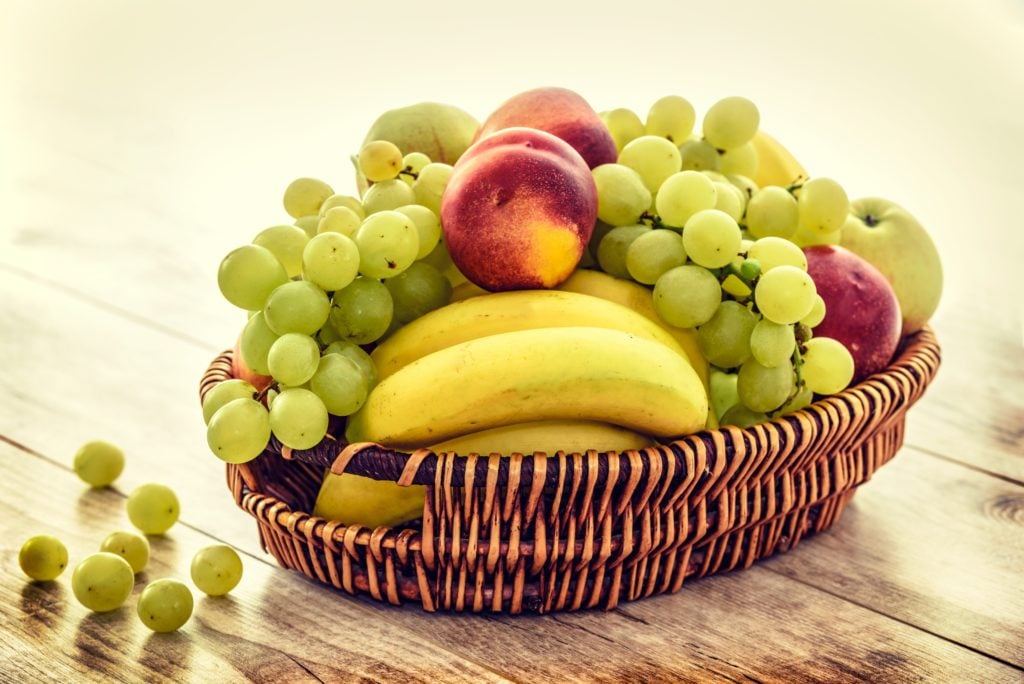Gut-Friendly Foods: 10 Prebiotic Foods to Feed a Healthy Gut

There’s no doubt that gut health is important. In fact, we’ve written several articles on the topic, including pieces about the gut flora, the gut-brain connection, and the overlooked benefits of probiotics. So, when it comes to a good, healthy gut, you are likely already aware of the benefits of consuming fermented foods and supplementing with high-quality probiotics daily. There are also gut-friendly foods that help feed your healthy microbiome that are just as important (or even more so) because they contain prebiotics.
Prebiotics are indigestible compounds (often fibers like oligosaccharides, including inulin and fructo-oligosaccharides [FOS], resistant starch, and even certain polyphenols) that pass through the GI tract to the large intestine. There, they serve as fertilizer for the gut microbiome, as they are fermented by healthy gut bacteria.
Along these lines, prebiotics help increase levels of “good” bacteria while helping reduce the number of “bad” bacteria, altogether promoting a healthy balance of gut bacteria. What’s more, healthy gut bacteria produce a range of key nutrients (such as B and K vitamins and short-chain fatty acids) during the fermentation process that support a well-functioning digestive system, immune system, and overall health.
In addition, a healthy gut supports mental health (by aiding mood and stress management), brain health, heart health, and metabolic health (by helping manage appetite and weight). What’s more, it keeps harmful microorganisms in check, supports recovery and sports performance, and helps protect the skin ecosystem.
When it comes to gut-friendly foods featuring prebiotics, the great news is that you have quite a few choices. But we’re going to skip past some of the ones you likely don’t readily find in your grocery store (like dandelion greens or chicory root, for example, which are some of the best sources) and focus on ones that are easy to find and delicious to consume.

10 Gut-Friendly Foods
1. Apples
Perhaps one of the reasons “an apple a day keeps the doctor away” became a popular maxim is because of the high pectin levels (50% of total fiber content). Pectin, which is a fermentable fiber with prebiotic properties, leads to increased production of the short-chain fatty acid butyrate, which fuels the immune system and even helps with appetite management. Apples are also packed with polyphenols, which are not just powerful antioxidants, they also have prebiotic activity. This 1-2 combo of pectin and polyphenols has been linked to improved digestive health, beneficial changes in the gut microbiome, and improved fat metabolism. One study found that women who consumed either 3 apples or 3 pears per day lost 2.6 pounds over 12 weeks without making any other dietary changes.
2. Bananas
While ripe bananas provide around 3 grams of fiber, including a small amount of inulin, green, unripe bananas, are loaded with both FOS and “resistant starch.” This type of prebiotic starch helps boost fat burning and reduce body fat as it supports insulin sensitivity and helps manage metabolism.
3. Asparagus
This popular and tasty vegetable contains about 2 to 3 grams of inulin per 3.5-ounce serving, making it a true gut-friendly food. It also contains antioxidants in addition to fiber to help support a healthy inflammatory response. As an interesting aside, have you ever noticed that you have a distinct smell to your urine after eating asparagus? If so, you’re not alone. About 60% of the population can, and scientists believe the asparagus odor in urine comes from molecules (such as methanethiol, which contains sulfur and has an odor like cooked cabbage) that are made by the body when asparagus is broken down, according to 23andme.
4. Legumes
Beans, peas, and lentils, for example, especially those that have been cooked and then cooled, provide prebiotics like galacto-oligosaccharides (GOS), oligosaccharides, and resistant starch. One recent study found that GOS from legumes increased levels of Bifidobacteria probiotics while reducing appetite, food intake, and inflammation.
5. Garlic
With a filling fiber content that’s has about 11% inulin and 6% FOS, raw garlic has been shown to help feed Bifidobacteria in the gut while also preventing the growth of disease-promoting bacteria.
6. Onions
Much like garlic, raw onions provide potent flavor along with about 10% inulin from its fiber content with FOS making up about 5%. FOS is a powerful prebiotic that aids fat breakdown.
7. Oats
Just a half cup of raw oats (the lesser processed whole oats or steel cut oats are preferable) are high in the soluble fiber beta-glucan. They’re also another source of resistant starch and have been shown to help support stable blood sugar levels and reduce LDL cholesterol. Raw oats or oats that have been cooked then cooled have greater prebiotic activity.
8. Quinoa
This gluten-free, fiber-rich, grain-like pseudo-cereal has also been shown to feed the microbiome while supplying a healthy amount of complete protein, magnesium, manganese, and copper.
9. Walnuts
In general, nuts are typically good sources of fiber and polyphenols. We’re singling out walnuts because a small study published this year found that folks who enjoyed a half a cup of walnuts daily over a three-week period saw an increase in the number of gut bacteria that produces butyrate, which helps support the body’s response to inflammation and may contribute to a healthier colon.
10. Raw Apple Cider Vinegar
Made by crushing apples and adding bacterial yeast to ferment the sugars, look for apple cider vinegar (ACV) that contains “mother” (the cloudy, gooey stuff in the bottom of the jar), which is actually a colony of gut-friendly probiotics. Plus, because of its rich content of pectin and polyphenols, ACV also has prebiotic potential.
If you’re looking for the best results when it comes to gut-friendly foods, you’ll want to combine prebiotics with probiotics to create “synbiotics.” Prebiotics and probiotics work synergistically to support a healthy, happy gut, and these 10 gut-friendly foods are easy to find, delicious to eat, and will help your gut thrive!
the small and large intestines.







